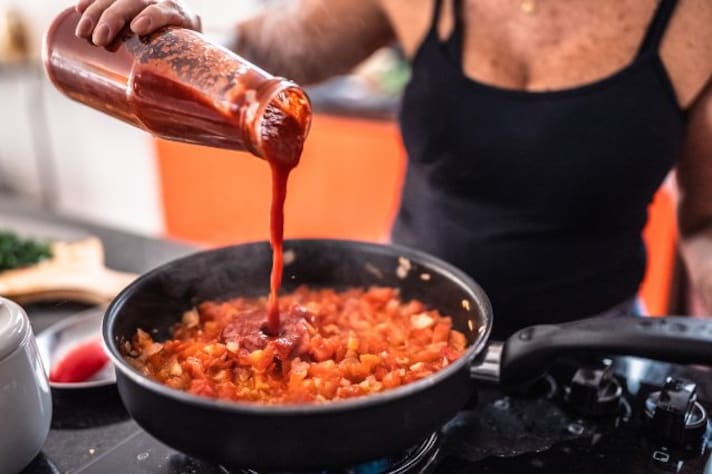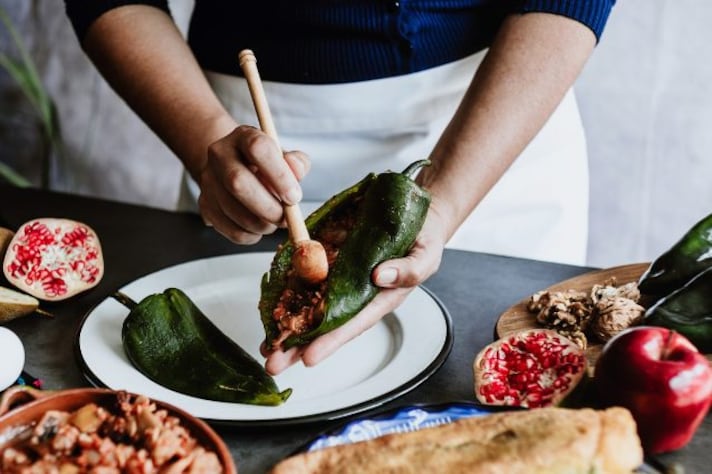
Cooking a great sauce is an art, but crank up the heat too much, and you’re on a fast track to culinary disaster. While high heat can be useful in certain stages of cooking, letting your sauce boil away indoors can lead to more problems than just a smoky kitchen. From wrecking flavor to leaving your walls wearing your dinner, here’s why you should keep your cool when cooking a sauce.
The Flavor Meltdown
A sauce simmering on low heat allows flavors to meld and deepen, creating the complex harmony that makes every bite worth savoring. Turn up the heat, and you risk scorching delicate ingredients like garlic, herbs, or cream. High temperatures can strip away the nuanced layers of flavor and replace them with a bitter, burnt undertone that no amount of seasoning can mask. Think of it like a bad karaoke performance—loud doesn’t mean good.
Textural Turmoil
Cooking a sauce too hot is a recipe for inconsistency. Dairy-based sauces, like Alfredo or béchamel, can split into an unappetizing curdled mess if the heat’s too high. Tomato sauces, on the other hand, may turn grainy or overly thick, resembling paste more than a luscious topping for pasta. When it comes to achieving that silky, velvety texture, patience truly pays off.

Steam and Stains
High heat doesn’t just impact your sauce; it can also wreak havoc on your indoor cooking environment. A sauce bubbling furiously sends droplets flying, creating splatter art on your walls, countertops, and stovetop. And let’s not forget the steam. Boiling a sauce excessively indoors can fill your kitchen with moisture, leading to condensation on windows and surfaces—not exactly the ambiance you’re going for during dinner prep.
Aromas Gone Awry
A slow-simmering sauce fills your home with inviting aromas that build anticipation for the meal ahead. When you cook a sauce too hot, those same aromas can go from savory to suffocating in a matter of minutes. Burnt tomatoes, scorched onions, or over-reduced wine can turn your culinary triumph into a nasal assault. Nobody wants their house to smell like the aftermath of a campfire gone wrong.

When Heat Meets Chaos
There’s also the practical matter of control. Cooking a sauce on high heat gives you little time to react if something goes wrong. A brief distraction—a knock at the door or a text you just have to answer—can mean the difference between a sauce that’s perfect and one that’s unsalvageable. When you’re indoors, where distractions abound, sticking to a lower heat ensures your sauce stays manageable.
;Resize,width=767;)
